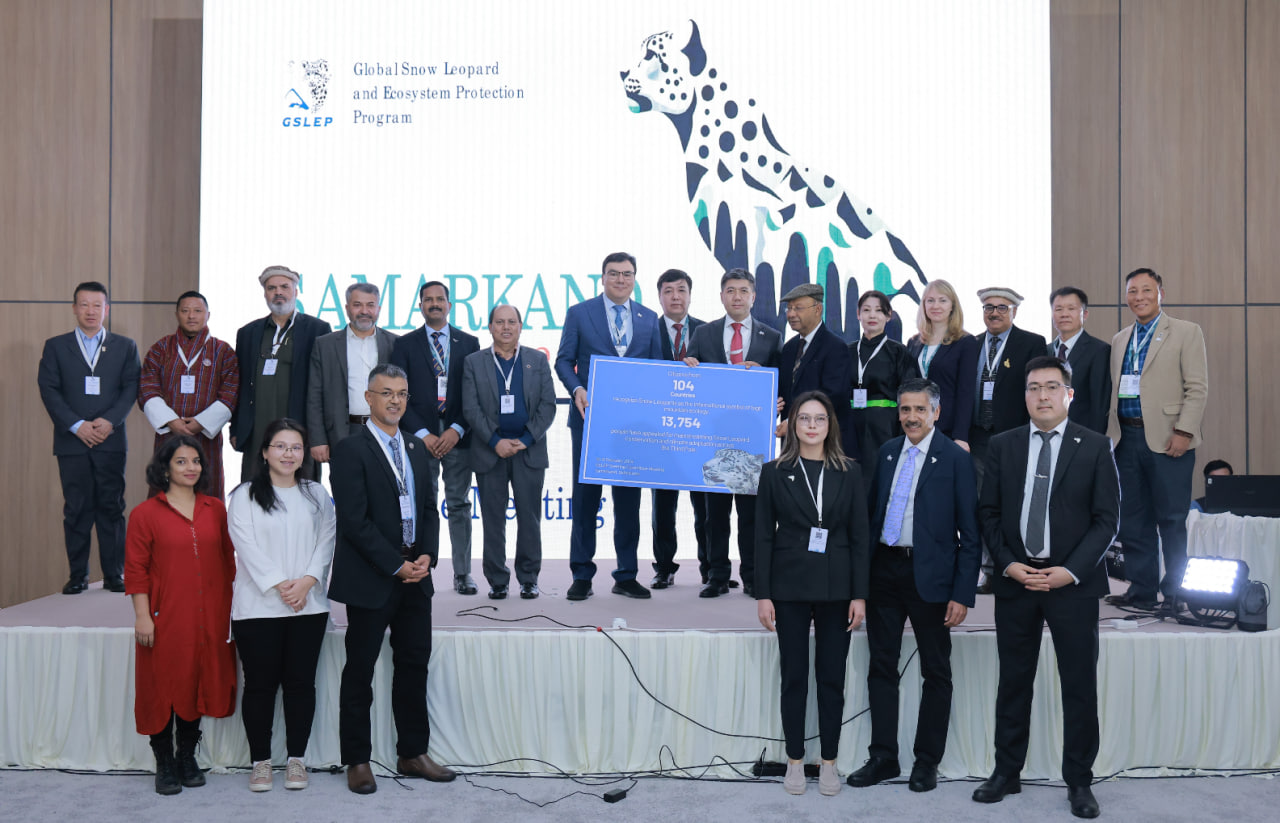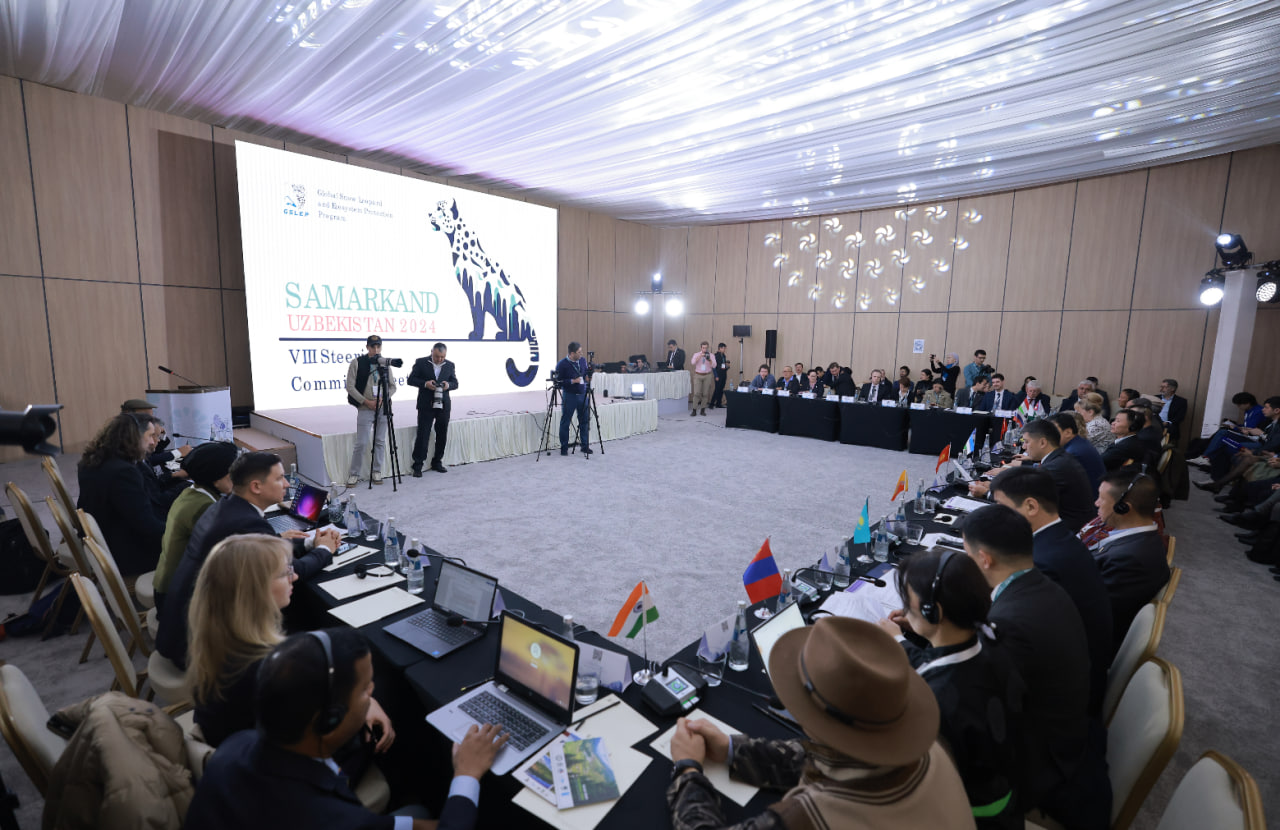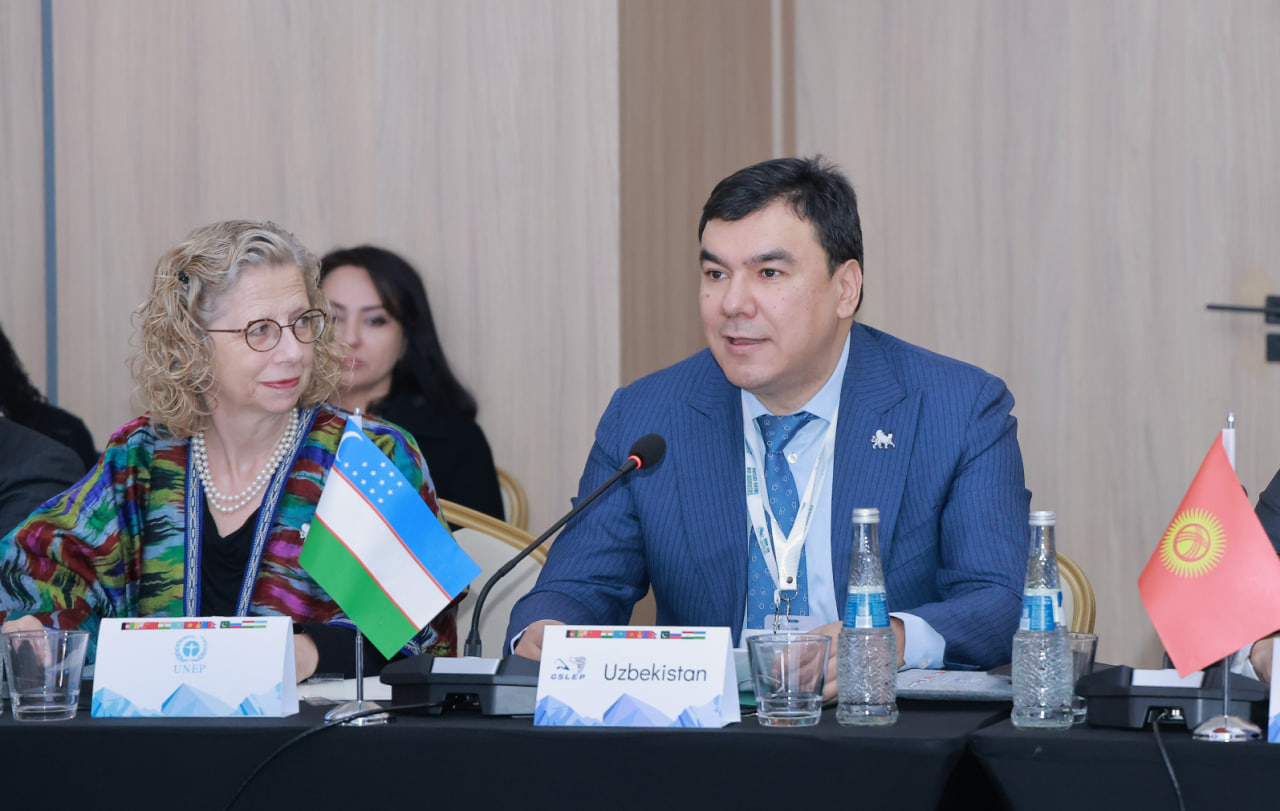
On February 11, a Ministerial Meeting of the Steering Committee of the Global Program for the Protection of Snow Leopards and Ecosystems (GSLEP) was held. The event was attended by the ministers of the environment of the countries in the snow leopard range, as well as representatives of partner organizations and international financial institutions (IFIs). The 10th anniversary of this intergovernmental alliance, which was established under the Bishkek Declaration of 2013, was celebrated.




The Minister of Ecology, Environmental Protection, and Climate Change of the Republic of Uzbekistan, Aziz Abdukhakimov, spoke at the ministerial meeting. In his speech, the minister pointed out that the conservation of the snow leopard and its ecosystems is not only important from an ecological point of view but also of great importance for heritage and culture.
"In Uzbekistan, we put nature protection and environmental protection at the center of government policy. Several documents, resolutions, and action plans on environmental strategic policy were adopted, including the concept of environmental protection until 2030, the strategy for Biodiversity Conservation until 2028, and others", A.Abdukhakimov noted.
"In cooperation with the GEF and UNDP in Uzbekistan, we have successfully implemented a snow leopard conservation project, which allowed us to create two visitor centers with an emphasis on environmental education and implement a SMART patrol system. We are also proud that the cross-border cooperation on the conservation of snow leopards in the Western Tien Shan, initiated by the Government of Uzbekistan, led to the signing of a cross-border memorandum of understanding", the minister added.
The meeting collectively assessed the efforts made by the governments of the 12 countries in the snow leopard range, as well as the GSLEP Secretariat and partners, to implement the Bishkek Declaration, identify priority actions for the future, discuss identified funding gaps, assess future resource needs, and determine the conditions for financing initiatives to conserve snow leopard populations. This meeting, with the participation of international development organizations, international financial institutions, and donor countries, provides an opportunity to strengthen international cooperation, initiate projects, and attract grant funds to the country to preserve the snow leopard population and adapt to the effects of climate change.
In today's realities, in the context of climate change, which leads to global warming and the melting of glaciers, thereby causing irreparable damage to the habitat of the snow leopard and its prey sources, it was noted that there is an urgent need to develop and deepen regional, cross-border, and interstate cooperation to preserve this valuable species.
Given the importance of conducting a timely dialogue and developing joint actions and measures to preserve the range of the snow leopard, the historic Samarkand Resolution was adopted at the end of the meeting, outlining the main obligations. She called on governments, development partners, and financial institutions to support the GSLEP program and related initiatives by exploring innovative financing mechanisms to accelerate climate change adaptation and conservation efforts.
"The GSLEP management team adopted the Samarkand Resolution and agreed with all 12 countries in the snow leopard range. According to it, each country committed for three years to implement measures aimed at preserving the snow leopard and its ecosystems", said Abdurashid Sadykov, Head of the Biodiversity Policy Department.
This landmark meeting catalyzed transformative action for the next decade and promised to ensure the ecological future of the highlands of Asia for the benefit of the biodiversity of the region and all mankind.











